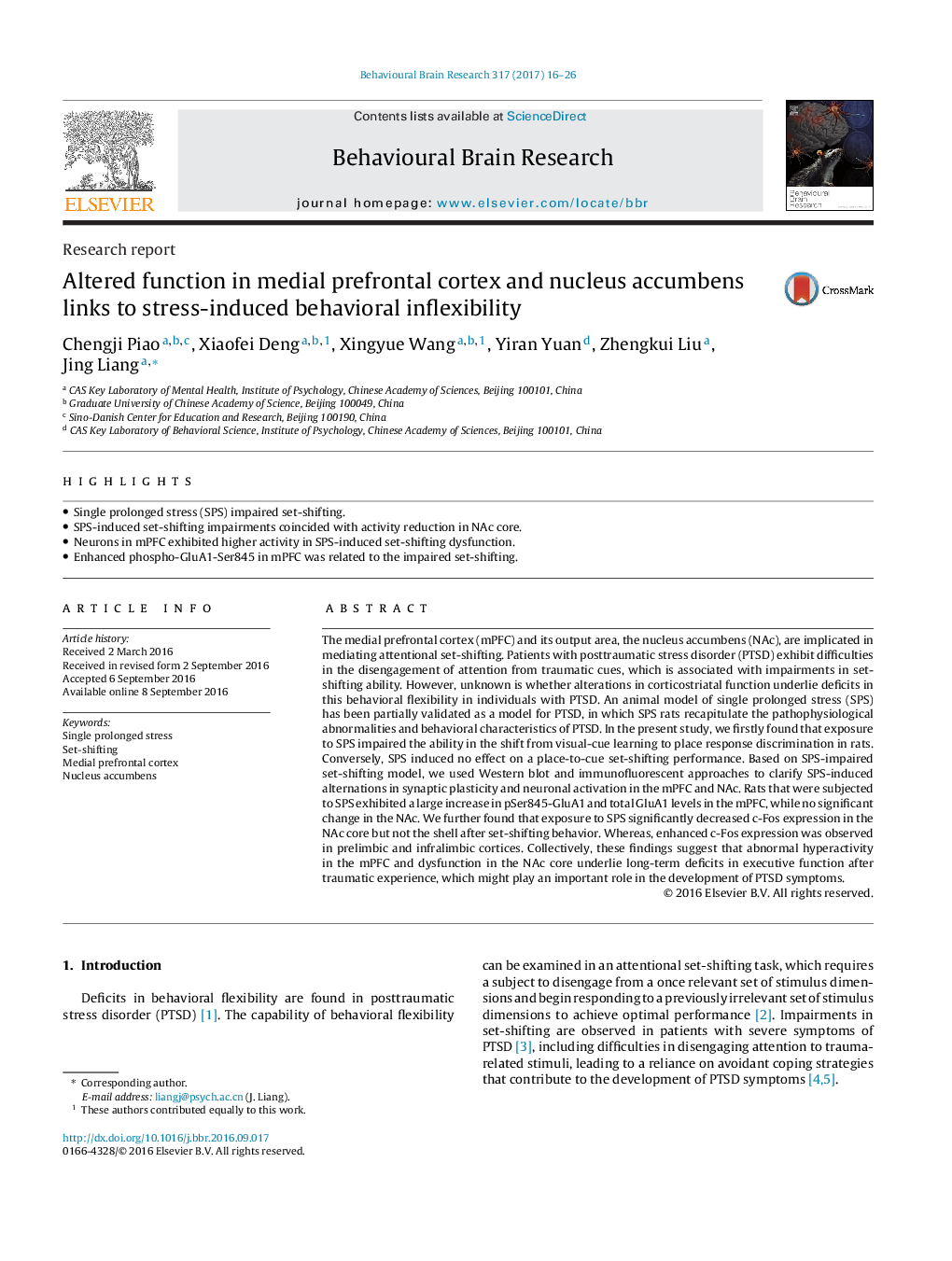| Article ID | Journal | Published Year | Pages | File Type |
|---|---|---|---|---|
| 4311945 | Behavioural Brain Research | 2017 | 11 Pages |
•Single prolonged stress (SPS) impaired set-shifting.•SPS-induced set-shifting impairments coincided with activity reduction in NAc core.•Neurons in mPFC exhibited higher activity in SPS-induced set-shifting dysfunction.•Enhanced phospho-GluA1-Ser845 in mPFC was related to the impaired set-shifting.
The medial prefrontal cortex (mPFC) and its output area, the nucleus accumbens (NAc), are implicated in mediating attentional set-shifting. Patients with posttraumatic stress disorder (PTSD) exhibit difficulties in the disengagement of attention from traumatic cues, which is associated with impairments in set-shifting ability. However, unknown is whether alterations in corticostriatal function underlie deficits in this behavioral flexibility in individuals with PTSD. An animal model of single prolonged stress (SPS) has been partially validated as a model for PTSD, in which SPS rats recapitulate the pathophysiological abnormalities and behavioral characteristics of PTSD. In the present study, we firstly found that exposure to SPS impaired the ability in the shift from visual-cue learning to place response discrimination in rats. Conversely, SPS induced no effect on a place-to-cue set-shifting performance. Based on SPS-impaired set-shifting model, we used Western blot and immunofluorescent approaches to clarify SPS-induced alternations in synaptic plasticity and neuronal activation in the mPFC and NAc. Rats that were subjected to SPS exhibited a large increase in pSer845-GluA1 and total GluA1 levels in the mPFC, while no significant change in the NAc. We further found that exposure to SPS significantly decreased c-Fos expression in the NAc core but not the shell after set-shifting behavior. Whereas, enhanced c-Fos expression was observed in prelimbic and infralimbic cortices. Collectively, these findings suggest that abnormal hyperactivity in the mPFC and dysfunction in the NAc core underlie long-term deficits in executive function after traumatic experience, which might play an important role in the development of PTSD symptoms.
